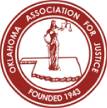
Car accidents can be complicated events, with numerous factors influencing the outcomes. In scenarios where you are the driver, the steps toward insurance claims and liability issues may seem relatively straightforward. But when someone else drives your car and gets into an accident, many car owners find themselves in uncharted territory, confronted with questions about responsibility, insurance claims, and potential legal implications.
This post will delve into this complex topic to provide more clarity. For any legal issues, speak with an Oklahoma car accident lawyer.
The Permissive Use Principle in Auto Insurance Policies
An important starting point for understanding this issue is the principle of “permissive use” in auto insurance. Essentially, this principle states that if you willingly allow another person to drive your vehicle and they get involved in an accident, your auto insurance typically serves as the primary coverage. That is, the damages from the accident, regardless of the driver’s fault, will be covered under your insurance.
Yet, this principle is not as simple as it appears. There can be several exceptions and specifications which the nature of the accident might determine, the terms of your insurance policy or the driver’s insurance policy.
Our Team Is Here To Assist You Every Step Of The Way.
SPEAK TO AN ATTORNEY TODAYExceptions: When the Permissive Use Principle May Not Apply
At the core of understanding the issue of liability is the principle of “permissive use” in auto insurance. This principle broadly states that if you permit another person to drive your vehicle and they get involved in an accident, your auto insurance will act as the primary coverage. Your insurance will likely cover the damages, regardless of who was at fault for the accident.
However, applying the “permissive use” principle is not as straightforward as it might seem. Its interpretation can vary significantly from one insurance policy to another and from one region to another. Let’s unpack some of the exceptions and specifications to this rule.
Named Driver Policy
One of the significant exceptions to the permissive use principle is the “named driver” policy. In this type of policy, coverage is limited to the drivers explicitly named in the policy. Therefore, if an individual not listed in your policy drives your car and gets into an accident, your insurance may not cover the damages. Depending on local laws and regulations, this could leave either the driver or you to shoulder the costs.
Illicit Activities
Another crucial exception revolves around the driver’s behavior during the accident. If the person driving your car was engaged in unlawful activities during the accident, your insurance provider might refuse the claim. Such activities could include driving under the influence of alcohol or drugs, reckless driving, or any form of criminal activity. Under these circumstances, the liability could fall on the driver, or even you as the car owner, depending on the specific case.
Diving Deeper into Exceptions to the Permissive Use Principle
To fully understand how these exceptions can impact liability and insurance claims, let’s explore each one in more detail:
- Named Driver Policy: This policy offers coverage only for those listed on the policy. If a friend or family member borrows your car and is not listed on your policy, your insurance may not cover any accident-related costs, and the result could be substantial out-of-pocket expenses for either the driver or you.
- Excluded Drivers: Some policies allow you to specifically exclude certain individuals from your coverage. If an excluded individual drives your vehicle and causes an accident, your insurance company will likely deny the claim, potentially making you or the driver responsible for the damages.
- Business Use: If someone used your vehicle for business and got into an accident, your auto policy might not cover the damages. In this case, a commercial auto insurance policy would likely be needed.
- Illicit Activities: As mentioned, engaging in illegal activities while driving can nullify insurance coverage. This includes driving under the influence, racing, or other illegal acts. In these cases, you or the driver may be held personally responsible for the costs.
- Unlicensed Drivers: If an unlicensed driver was operating your vehicle at the time of the accident, your insurance company may refuse the claim, potentially making the driver or you liable for damages.
Every insurance policy and regional law can interpret these exceptions differently. It’s crucial to understand the specifics of your auto insurance policy and be aware of your area’s laws.
Secondary Insurance: An Additional Layer of Protection
The driver’s auto insurance can often function as secondary coverage in these situations. If the accident costs surpass your policy’s coverage limit, the driver’s insurance may come into play. This layer of coverage can provide some relief and assurance, especially in high-damage accidents.
However, the conditions under which secondary coverage applies can vary based on the terms of both your and the driver’s insurance policies.
The Concept of Negligent Entrustment
Sometimes, liability can be attributed even when you are not the one directly causing the accident. This can occur under a legal concept known as “negligent entrustment.” Under this concept, if you knowingly allow an unfit driver (e.g., someone under the influence, unlicensed, or simply not experienced enough to operate your vehicle) and they subsequently cause an accident, you could be held partially or fully liable for the resulting damages.
This responsibility arises from the legal expectation that vehicle owners must exercise reasonable care in deciding who they allow to drive their cars. So, if you’re lending your vehicle, it’s always wise to ensure the driver is fit and legally eligible to operate it.
The Bottom Line: Know Your Policy
While these general guidelines provide a framework for understanding liability when someone else crashes your car, remember that every insurance policy has unique terms and conditions. It’s paramount to read and comprehend the specifics of your auto insurance policy. If necessary, consult an insurance expert to ensure you are adequately protected and aware of potential scenarios.
Each car accident comes with unique circumstances, which can influence liability and insurance coverage differently. As a car owner, you are responsible for understanding your potential liabilities, not just when you are behind the wheel but also when you entrust your vehicle to someone else. This knowledge can help you make more informed decisions and avoid unexpected liabilities.
Contact BDIW Law for help with your case.








